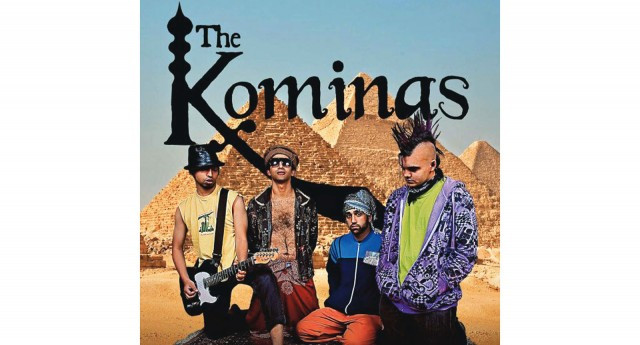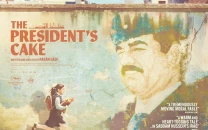Politically incorrect?

Politically incorrect?
Often irreverent, but always thought-provoking, the Boston-based band’s music is identified with a movement called Taqwacore, which includes Michael Muhammad Knight’s book The Taqwacore and the birth of bands questioning their ingrained ideals through their music. A documentary (Taqwacore: The Birth of Punk Islam) and a film (The Taqwacores) have been made about the movement.
The latter was screened at the Sundance Film Festival and has received a scathing review from the conservative Urdu newspaper, Ummat. But the reaction to the band from the desi community in the US, according to The Kominas, is ‘varied’. The band was recently dropped from an event being organised by the Association for the Development of Pakistan, which is based in Boston. The Kominas’ Imran Malik tweeted: “Got a phone call saying The Kominas have been dropped from a benefit gig we agreed to do a few months ago because we’re ‘too political’”. In an e-mail interview, the band told The Express Tribune whether they have received such reactions before:
Has the band been dropped from events before because of the themes in your music?
Not exactly, but we recently had a controversial appearance at a Harvard panel called Contemporary Music Voices where a member(s) of the faculty were not sure if we would be appropriate because of our lyrics and possibly what they assumed our ‘message’ was. However, Professor Ali Asani (Professor of Indo-Muslim and Islamic Religion and Cultures at Harvard) recommended that we participate, and the conference was a rich, meaningful experience for all the artists involved as well as the attendees.
What has the reaction to The Kominas been from the Pakistani-American community?
Are they ready to disown you or has the barrage of press about the band and Taqwacore not changed their minds? The reaction is varied; people our age can go either way. We have had a number of instances where people come to a concert knowing nothing of punk music or of what to expect from us because of something they may have read. We try very hard to make meaningful connections with audience members.
Professor Ali Asani clarified the objection The Kominas faced at Harvard:
The objection at Harvard came from an uninformed administrator and not a faculty member. His objection disappeared when he was educated about the nature of the Kominas’ work. I invited The Kominas to Harvard because from a historical and literary perspective they are continuing a long tradition in the Islamic tradition of using popular culture (in this case punk) to question narrow constructions of religion and labels of identity, sometimes in controversial ways.
In this sense they are perfectly in keeping with the spirit of prominent Sufi poets and singers such as Rumi, Bullhe Shah, Sachal Sarmast who used the popular culture of their time as a medium to question categories created by those who claim that they have the sole authority to determine and define what is appropriate in Islam. Like The Kominas, these luminaries too were criticized and marginalized until they achieved fame.
Published in the Express Tribune, May 21st, 2010.



















COMMENTS
Comments are moderated and generally will be posted if they are on-topic and not abusive.
For more information, please see our Comments FAQ